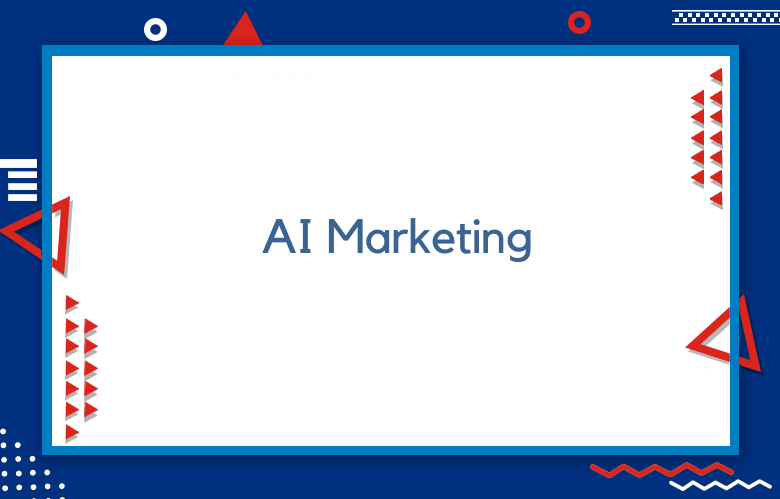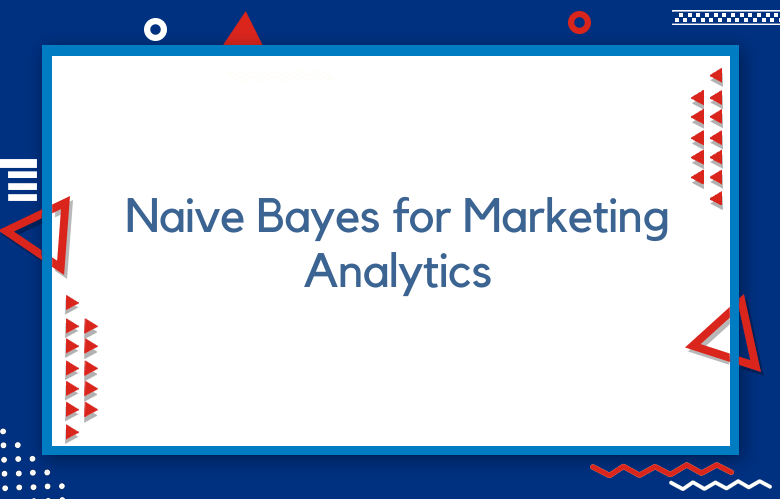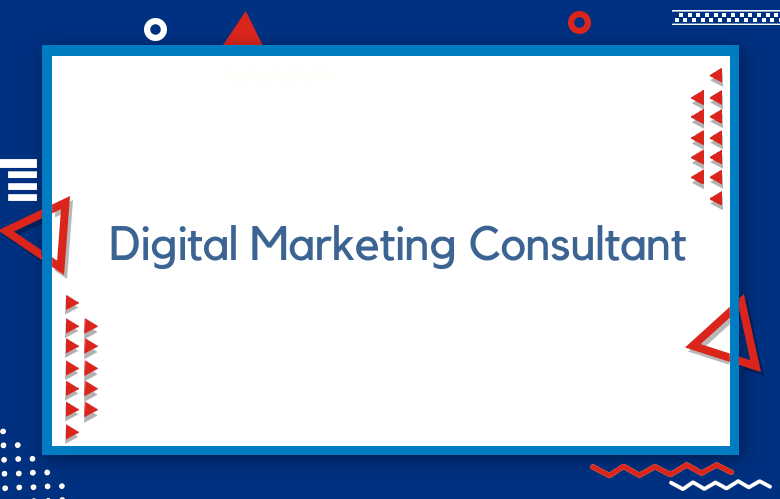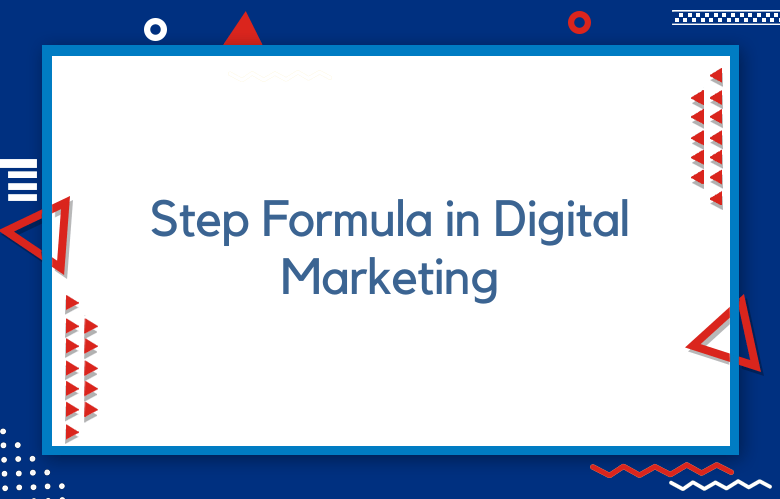How Artificial Intelligence builds the Future of Marketing

As technology advances, so does marketing. And with the rise of artificial intelligence (AI), businesses are finding new and innovative ways to reach consumers. AI is changing the marketing landscape through its ability to collect and interpret data quickly and efficiently.
It allows businesses to target customers with personalized ads and messages, creating a more engaging and meaningful customer experience. As AI continues to evolve, it is poised to play an even more significant role in marketing and the future of business. So what is the end? Let’s take a closer look.
We are experiencing unusual technological advances. Many of these advances are happening in artificial intelligence (AI). AI learns and evolves independently, creating new opportunities for businesses and consumers.
While there are concerns about how much AI will change our lives, the truth is that it is already dramatically changing them. We’ll explore how AI is building the future of marketing and what that means for your business.
What is artificial intelligence & how does it work in marketing
In marketing, artificial intelligence can target ads and content to consumers based on their buying habits and preferences. Additionally, AI can help automate and improve the efficiency of marketing tasks such as media buying and planning, ad targeting, consumer segmentation, and more.
Some believe that artificial intelligence will soon change marketing as we know it. By understanding artificial intelligence and how it works in marketing, we can better prepare for potential changes.
So, what exactly is artificial intelligence? In short, artificial intelligence is programming computers to handle tasks that require human intelligence, like visual perception, natural language processing, and decision-making.
As for how artificial intelligence works in marketing. For one, AI can gather customer data and provide insights based on that data.
How AI is changing the way we interact with customers – from chatbots to predictive analytics
Artificial intelligence is drastically changing the landscape of customer service. Increasingly, chatbots are used to handle initial customer contact and support. AI predicts customer behavior, preferences, and needs. By understanding customers better, businesses can provide them with more personalized experiences. Ultimately, AI is making customer service more efficient and effective.
As artificial intelligence evolves, so does how we interact with customers. From chatbots to predictive analytics, AI is changing the landscape of customer service as we know it. By automating routine tasks and providing accurate answers to common questions, AI frees up time for customer service reps to provide a more personalized level of support.
In addition, AI can help identify customer trends and needs, allowing businesses to address issues proactively before they become problems. As AI continues to fill the world of customer service, it’s clear that the future is bright for those willing to embrace this transformative technology.
One way AI is changing customer relations is through the use of chatbots. Businesses can program chatbots with basic customer service skills to relieve some of the load on their human customer service reps.
Chatbots can help with handling customer service inquiries, but they can also predict a customer’s needs. By tracking customer behavior and previous interactions, AI can predict what customers might need and when they need it.
This predictive technology can benefit businesses by helping them plan inventory and keep customers happy. By anticipating customers’ needs, companies can provide a better overall experience.
Ambassadors are digital representatives of a company who can answer questions, provide guidance, and even make purchase suggestions. They offer 24/7 service and can help deflect frustrated customers from busy customer service lines.
Chatbots are programs that imitate human conversation. Businesses use chatbots to handle customer service inquiries, provide recommendations, and even close sales.
Predictive analytics helps businesses anticipate customer needs before seeking assistance. Companies can proactively address potential issues by analyzing past behavior and providing personalized solutions.
When it comes to customer interactions, AI is changing the game. Businesses increasingly turn to artificial intelligence, from chatbots to predictive analytics, to provide a better (and more efficient) customer experience.
But what is the future of customer service? Will human employees become obsolete? Or will AI supplement our existing interaction methods? Only time will tell. AI is revolutionizing how we interact with customers.
How AI is changing marketing and the customer experience
Marketing is evolving as artificial intelligence (AI) plays a role in understanding and reaching consumers. By studying past customer behavior, AI helps marketers anticipate customers’ needs and deliver targeted content and messages accordingly.
Additionally, AI can automate routine tasks like email marketing and social media monitoring, allowing marketers to focus on higher-level strategic work. As AI progresses, we can only imagine the new and innovative ways it will transform marketing.
AI has made incredible advancements in nearly every industry, and marketing is no exception. By automating various tasks and processes, AI has the potential to vastly improve the efficiency of marketing campaigns and the overall customer experience. There are a few ways that AI is changing marketing and the customer experience:
- Automated customer segmentation: AI can automatically analyze behavioral data to group customers into meaningful segments for targeted marketing campaigns.
- Enhanced personalization: Using AI, businesses can create highly personalized content and messages tailored to each customer.
- Improved lead generation: AI can help identify potential leads and make customers more likely to convert.
- Predictive analytics: With predictive analytics,
The future of AI-driven marketing
In the future, AI will drive marketing decisions. It allows for more personalized and targeted marketing campaigns. As a result, businesses will be able to meet the needs of their customers better.
AI plays an increasingly important role in marketing. AI will become more commonplace in driving marketing decisions in the future. This shift will enable businesses to create more personalized and targeted marketing campaigns. As a result, companies will be better able to meet the needs of their customers.
As artificial intelligence becomes more advanced, so will the marketing strategies that rely on it. In the future, AI-driven marketing will become more and more commonplace as businesses increasingly turn to AI to help them target and reach their customers more effectively.
With AI powering your marketing efforts, you can target your ads and messages more precisely than ever before and ensure that your marketing budget is efficient. In short, the future of AI-driven marketing is indeed looking very bright!
Implications of AI for businesses and consumers
As artificial intelligence increasingly infiltrates our daily lives, businesses and consumers must consider its implications.
For businesses, AI presents both opportunities and challenges. On the one hand, AI can help enterprises automate tedious tasks and boost efficiency.
AI also leads to job loss and other economic disruptions. As for consumers, AI can make life more convenient in many ways. However, it also raises privacy concerns and could potentially be used to manipulate people’s behavior.
As we move into a new era of AI, we must stay informed and proactive about the implications of this transformative technology.
The implications of artificial intelligence (AI) are far-reaching and complex. For businesses, AI brings both opportunities and challenges.
It can help companies automate processes, improve decision-making, and drive growth. However, it can also create new risks and vulnerabilities.
For consumers, AI brings both benefits and risks. It can make everyday tasks easier and empower people with unique abilities. However, it can also lead to increased personal data collection and loss of control over information.
Conclusion
The potential for AI in marketing is limitless. As machines improve their understanding and response to customer needs, marketers can focus on strategy and creativity rather than grunt work.
If you feel you’re behind the curve in AI, don’t worry—that’s where we come in.
Contact us today for artificial intelligence marketing consulting, and let us help you build a brighter future for your business.
Call: +91 9848321284
Email: [email protected]



